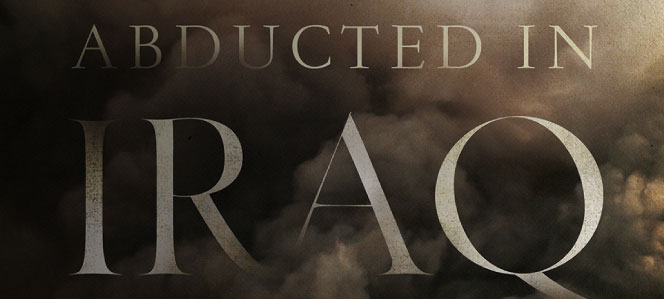How do we respond in the face of evil, especially to those who inflict grave evil upon us? Abducted in Iraq is Bishop Saad Sirop Hanna’s firsthand account of his abduction in 2006 by a militant group associated with al-Qaeda. As a young parish priest and visiting lecturer on philosophy at Babel College near Baghdad, Fr. Hanna was kidnapped after celebrating Mass on August 15 and released on September 11. Hanna’s plight attracted international attention after Pope Benedict XVI requested prayers for the safe return of the young priest.
Today, Jared Zimmerer discusses the book, Bishop Hanna’s story, and how this plight of Christians ought to be on every Christian’s mind.
Jared: Bishop Hanna, your story is one of self-discovery, deepening faith, and an eye-opening reality to the plight of numerous Christians in the Middle East. What do you hope your readers receive in knowing your struggles?
Bishop Hanna: First, As you can see and read, I wrote my story after ten years of my abduction in Iraq. It was not easy for me at the beginning to understand the reasons, dimensions, and meaning behind this experience. It is not easy to be threatened, kidnapped, shot, and killed just because you are Christian!
My whole wish is to let other Christians in different parts of the world understand the challenges and the difficulties that their brother and sister Christians are facing in the whole Middle East and especially in Iraq. Faith and testimony are the every day food for those who want to live as Christians in Iraq.
Secondly, the situation of these Christians is often goes ignored and marginalized for political reasons. We are attesting to the potential end of one of the most ancient populations and religious traditions in the world. The Apostolic tradition of the Church of the East, Chaldean and Assyrian tradition, and its theological and spiritual richness is at risk. The world needs to see and to listen to the voice of this suffering church.
Lastly, being a priest and serving your parish is another issue I wanted to talk about. Being faithful to your mission and beliefs requires fidelity and love for Christ above any anything else. You are not a priest just for Christian people but to everyone, and especially for Muslims. You are a man of dialog, respect, and love. You show this in how you act and your words. You must know how speak and present your faith to those who are different in faith and religion.
Jared: I’m sure many of our readers are wondering, how it was that you endured such a frightening ordeal? Where did you get the courage to face it?
Bishop Hanna: Faith in Christ is the best answer to that question. He is the one who said to us, don’t worry what to speak and what to say, the Holy Spirit will speak in you and through you. His person and his love to us are the base of our love, and your faith in yourself and in others. I took all the power from Him, and for Him I owe my new life. I want to say that we have the most precious, beautiful, and truthful value: Christ. Believing in Him will give all the strength and power to do what is right and good.
Jared: How do you see the future of so many Middle Eastern countries where this conflict between Christians and non-Christians often becomes so violent changing for the better? What do you see as an integral part of that positive change?
Bishop Hanna: I will say that I am worried and afraid for the situation and future of our Christians in the Middle East. To be realistic, we lost two thirds of our faithful in the last twenty years. The growing religious fundamentalism among the Muslim people is making our life as Christians a constant difficulty. The imposition of laws and legislations that limit the freedoms of the Christian people became a great challenge and ordeal that our people are suffering from everyday. The instability and insecurity of these societies makes the future very obscure and unsafe for the next generation. Families find it very difficult to raise their children among such danger and constant changes in the culture. These reasons and others tell us that the future of these communities is very critical.
Jared: What counsel would you offer those of us who want to support these areas but are unsure of how to go about it?
Bishop Hanna: I want to say for all of you not to forget of your brothers and sisters in faith: pray and remember them, supporting them in any possible and good way. Christ came from there, and many old traditions, liturgies, and beliefs were formed in these churches. Their history is your history in a certain sense, and it desparately needs to be kept and flourished. They are living in a very difficult and critical moment of their history and they need every possible help and support to continue their faith and life in Christ.

